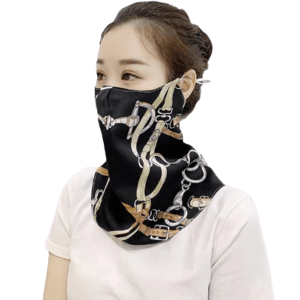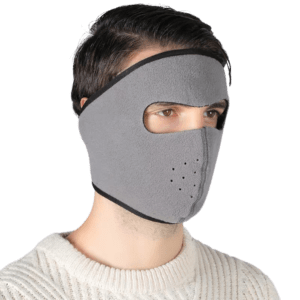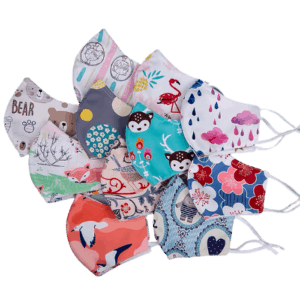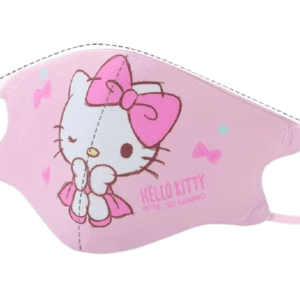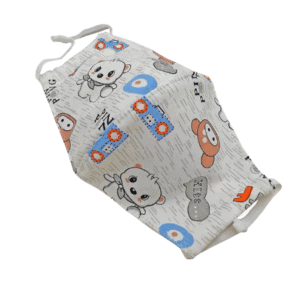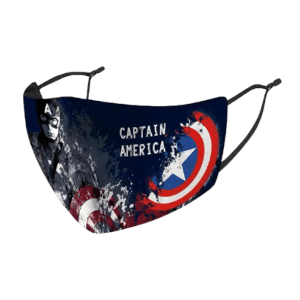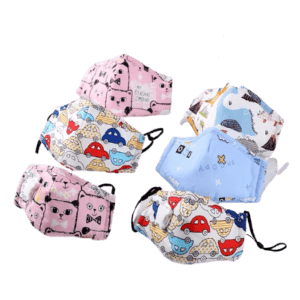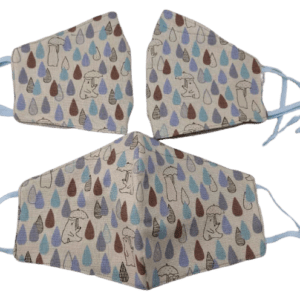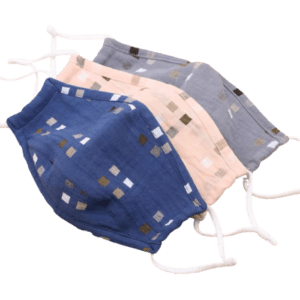The integration of RFID technology into fabric masks represents a significant advancement in inventory management, supply chain transparency, and user experience enhancement. Sourcing these smart masks requires understanding both textile manufacturing and electronics integration, creating unique challenges that conventional mask suppliers may not be equipped to handle. The convergence of these technologies enables real-time tracking, authentication, and even user interaction capabilities.
To source RFID-enabled fabric masks, identify suppliers with expertise in smart textile integration, select appropriate RFID tag types based on your tracking needs, ensure proper tag encapsulation for washability and comfort, and verify compatibility with your existing inventory systems. Successful implementation requires balancing technical specifications with practical wearing comfort and manufacturing feasibility.
RFID-enabled masks transform ordinary protective equipment into connected devices that can be tracked throughout the supply chain, authenticated to prevent counterfeiting, and even integrated with access control systems. The sourcing process involves multiple considerations beyond standard mask production, including tag selection, integration methods, data management, and regulatory compliance. Let's examine the specific steps and considerations for successfully sourcing these advanced products.
What RFID Tag Options Are Suitable for Fabric Masks?
Selecting the appropriate RFID technology is the foundation of successful smart mask implementation.

How do UHF tags benefit supply chain tracking?
UHF (Ultra-High Frequency) RFID tags offer the longest read range (up to 10-15 meters), making them ideal for warehouse management, inventory counts, and supply chain visibility without line-of-sight requirements. These tags typically cost $0.10-0.25 each in volume and can store essential product information including manufacture date, batch number, and destination. Our UHF-integrated masks enable complete warehouse inventory counts in minutes rather than days, with accuracy rates exceeding 99.5%.
When are NFC tags more appropriate?
NFC (Near Field Communication) tags require close proximity reading (less than 10 cm) but enable smartphone interaction for authentication, user engagement, and access control. These are particularly valuable for luxury masks, branded corporate merchandise, or healthcare applications where verification is important. At $0.15-0.35 per tag, NFC integration allows consumers to verify product authenticity and access care instructions or brand content through their mobile devices.
What Integration Methods Balance Durability and Comfort?
How RFID tags are incorporated into masks significantly impacts both functionality and wearability.

How can tags be permanently integrated without discomfort?
Ultrasonic welding encapsulation creates a waterproof, wash-resistant pocket that protects the tag while maintaining fabric flexibility. The tag is typically placed in a non-contact area such as the mask's side panel or upper cheek region where it won't press against sensitive facial skin. Our integration method adds less than 0.5mm thickness to the fabric while surviving 50+ wash cycles at 60°C—exceeding most mask lifespan expectations.
What about removable or reusable tag options?
Detachable tag systems using small plastic housings that clip onto mask straps or dedicated attachment points offer flexibility for applications where tags need to be removed before use or transferred between masks. While slightly more expensive ($0.25-0.45 per system), this approach allows for tag reuse and eliminates any comfort concerns. Our detachable system maintains read reliability while enabling complete tag removal for sensitive environments.
What Supplier Capabilities Indicate RFID Expertise?
Identifying manufacturers with relevant experience ensures successful implementation from concept to production.

What manufacturing expertise is essential?
Suppliers with smart apparel or wearable technology experience typically understand the unique challenges of integrating electronics with textiles. They should have established relationships with RFID tag suppliers, experience with encapsulation methods, and testing protocols for wash durability. Our manufacturing partners have specific departments dedicated to smart textile integration, with proven track records in similar applications.
What testing capabilities should suppliers possess?
Comprehensive RFID performance testing should include read range verification, wash cycle durability, temperature resistance, and compatibility testing with various reader systems. Suppliers should also conduct comfort testing to ensure tag placement doesn't compromise wearability. Our testing protocol includes 25 performance parameters specifically developed for RFID-integrated masks.
What Are the Cost Implications of RFID Integration?
Understanding the full cost structure helps evaluate the return on investment for smart mask implementation.

How much does RFID integration add to mask costs?
Total RFID integration costs typically add $0.35-0.85 per mask depending on tag type, integration complexity, and order volume. This includes the tag itself ($0.10-0.35), integration labor ($0.15-0.30), and additional testing/quality control ($0.05-0.15). At volumes above 50,000 units, these costs can decrease by 20-30% due to improved efficiency and volume pricing on components.
What operational savings offset these costs?
Inventory management efficiencies typically justify the RFID premium within 6-18 months through reduced labor costs, improved accuracy, and better inventory utilization. Our clients report 65-80% reduction in inventory counting time, 30-50% reduction in shrinkage, and 25-40% improvement in inventory accuracy—savings that often exceed the smart mask premium within the first year.
What Data Management Considerations Apply?
The value of RFID-enabled masks extends beyond physical tracking to data generation and utilization.

How is RFID data integrated with existing systems?
Middleware compatibility ensures RFID data integrates seamlessly with ERP, WMS, and inventory management platforms. The most effective implementations use standard data formats (EPC Global) that work with existing enterprise systems without custom development. Our implementation includes pre-built connectors for major inventory management platforms, reducing integration time from weeks to days.
What about data security and privacy?
Encryption and access control protect sensitive information while allowing authorized tracking throughout the supply chain. For masks with personalization or user identification, additional security layers ensure compliance with privacy regulations. Our security protocol includes tag-level encryption and system-wide access controls that maintain data integrity while enabling authorized use.
What Are the Implementation Steps for RFID-Enabled Masks?
A structured approach ensures successful deployment from pilot to full-scale implementation.

How should pilot programs be structured?
Limited-scale testing with 500-2,000 units validates the technology in real-world conditions before full commitment. The pilot should test multiple integration methods, tag placements, and reader configurations to identify the optimal approach. Our pilot program methodology tests 3-5 integration approaches simultaneously, providing data-driven selection criteria for full implementation.
What infrastructure investments are required?
Reader systems and software integration represent the primary infrastructure needs beyond the masks themselves. Fixed readers for warehouses ($1,500-4,000 each), handheld readers for mobile counting ($800-2,000 each), and software integration ( $5,000-20,000 depending on complexity) complete the ecosystem. Our implementation packages include reader recommendations and software integration support tailored to specific operational needs.
Conclusion
Sourcing RFID-enabled fabric masks requires specialized suppliers who understand both textile manufacturing and electronics integration. The most successful implementations balance technical capabilities with practical considerations of comfort, durability, and cost. While the initial investment exceeds standard masks, the operational benefits in inventory management, anti-counterfeiting, and supply chain visibility typically deliver compelling returns through reduced labor costs, improved accuracy, and enhanced user experiences.
The decision to implement RFID-enabled masks should be driven by specific operational challenges that smart tracking can solve, whether in healthcare inventory management, corporate asset tracking, or luxury brand authentication. As the technology matures and costs decrease, RFID integration is becoming increasingly accessible for mainstream mask applications.
Ready to explore RFID-enabled fabric masks for your smart inventory needs? Contact our Business Director, Elaine, at elaine@fumaoclothing.com to discuss our smart mask capabilities and implementation experience. We'll help you determine the optimal approach for your specific tracking requirements and operational environment.











